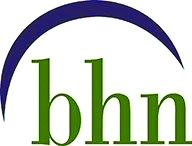Max loves the original Star Trek television series from the 1960’s. He loves how the character Spock finds emotions fascinating, but doesn’t really ‘get’ them. Spock is from planet Vulcan. Vulcans are a fully logical people; they have to learn the rules of social relationships that all these earthlings take for granted, because the social rules aren’t obvious to Vulcans. That’s how Max feels about social relationships too.
Max came to work as a counselor at the Carson Center’s Kamp for Kids under an internship through the Urban Youth Collaborative sponsored by the MA Department of Developmental Services. Kamp for Kids is a summer camp for kids of all abilities. It’s a place where kids can play in the spray park, do arts and crafts or explore the expressive arts. They can play noncompetitive sports and learn social skills. Some of the campers come with social learning challenges.
Here was Max, a young twenty-two year old counselor intern at Kamp, helping Jeremy, a ten year old young camper. Max was explaining to Jeremy that when Max asks Jeremy if he had given him the right kind of milk, that Jeremy’s barely perceptive affirmative nod and the impassive face wasn’t quite enough for a really effective social exchange. Deep in his heart, Max was saying to himself, “I get you; we are from Planet Vulcan. We’re brilliant and we are different. These Earthlings need so much more from us than we are used to giving. Earthlings want us to answer questions showing feeling, while we are just interested in the fact.”
So Max showed Jeremy how to open his face into a smile, nod his head up and down in affirmation, to murmur a short “thanks.” Jeremy practices. Max handed him the chocolate milk asking, “Is this the right one?” and Max nodded clearly, smiled a bright smile and replied, “Thanks.”
“Nice job! Good smile. Good head nodding. Good use of language. Did you feel more connected to me?” Max asked.
“Well…yeah, I did, really,” Jeremy replied.
“So did I,” said Max. “Now I want to show you another thing that helps connection with other people. When I finish a sentence, when I pause, can you glance at my nose? You don’t have to look me in the eye, but when I pause, just glance up at my nose. It will let me know you are following the ideas. Can we try it?
Max talked about his favorite dinosaurs. At every pause, Jeremy glanced at Jeremy’s chin , just as he asked.
“A little tiring?”
Jeremy nodded a hardly perceptible nod with his impassive face. Max raised his eyebrows—
“Oh!—Wait…” said Jeremy, who then nodded clearly, smiled and said , “Yes.”
They laughed.
“That’s okay; we’ll practice ‘till it gets easier.”
Max knew how tiring it was to glance up at the nose of the people he was talking to when they paused because he’d had to learn the same. He knew how hard it was to figure out what to say to when someone told you something —how to figure out the appropriate follow-up questions. And phone conversations could be torturous. In person, the nose was easier to glance at than the eyes—the eyes were a little overwhelming. The nose was his favorite trick—it helped Max in the interview to get the internship. Every time Max taught Jeremy or the other kids at Kamp a social skill, he was reinforcing it himself. There they are side by side, strengthening the skills that keep us connected.
By JAC Patrissi


